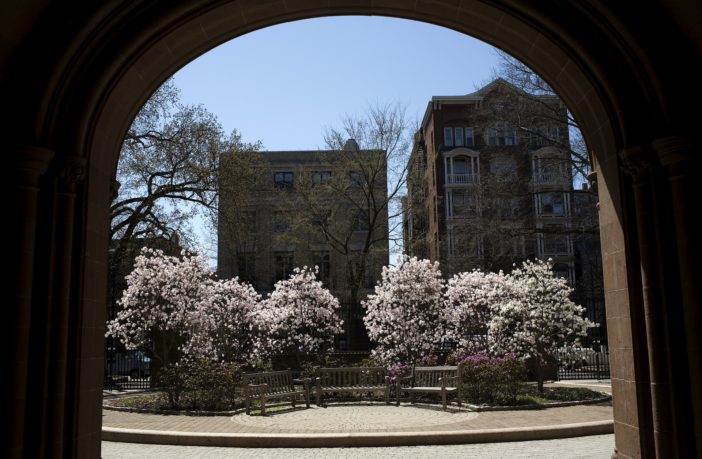Yale Prison Education Initiative and the University of New Haven have conferred degrees upon 7 inmates. They are the first to matriculate from a partnership between UNH’s Prison Education Program and the Yale Prison Education Initiative, the Associated Press reports. The graduation was held at Macdougall-Walker Correctional Institution, the largest correctional facility in New England.
Launched in 2016 by Zelda Roland, an alum of Yale, the initiative was based on a similar program that she was involved in at Wesleyan University.
In 2021, Yale began partnering with the University of New Haven to offer student-inmates two and four-year college degrees. Classes are held at McDougall-Walker and the federal women’s prison in Danbury, Connecticut. The program is currently a member of a consortium that includes prison systems across the country and 15 other schools.
“We believe that this is a transformative program, that it has the potential to make a generational impact,” said Roland, the director of the Yale-UNH partnership. “We believe that we’re transforming not just individual student’s lives, but also the institutions that we work in, both the universities and correctional system.”
At the graduation ceremony, Gov. Ned Lamont spoke glowingly about the program and how it has the potential to change the futures of returning citizens as the commencement speaker.
“We define our own futures and today is the start of that,” he said. “You learn from the past, but you define your own future. And what happens in your future is going to be your legacy. And I want you to have a really important story to tell.”
Marcus Havin, one of the six inaugural graduates of the program, shared with the Associated Press what receiving a degree from Yale means to him.
“That name, Yale, means so much because I’m from New Haven and to be able to study at Yale and begin studying in prison is unheard of,” Harvin said. “People even think I’m lying sometimes, so I’ll show them my jail I.D. and my Yale I.D.”
According to the University of New Haven, a little over 20% of inmates are afforded opportunities for higher education in prison. Studies have shown that inmates who have access to education “are far less likely to have behavioral problems in prison, and far less likely to commit crimes once they are released.”
Harvin said that receiving his degree has given him hope that he can accomplish even more going forward.
“It literally is the light at the end of the tunnel that gives the day illumination,” said Harvin.



